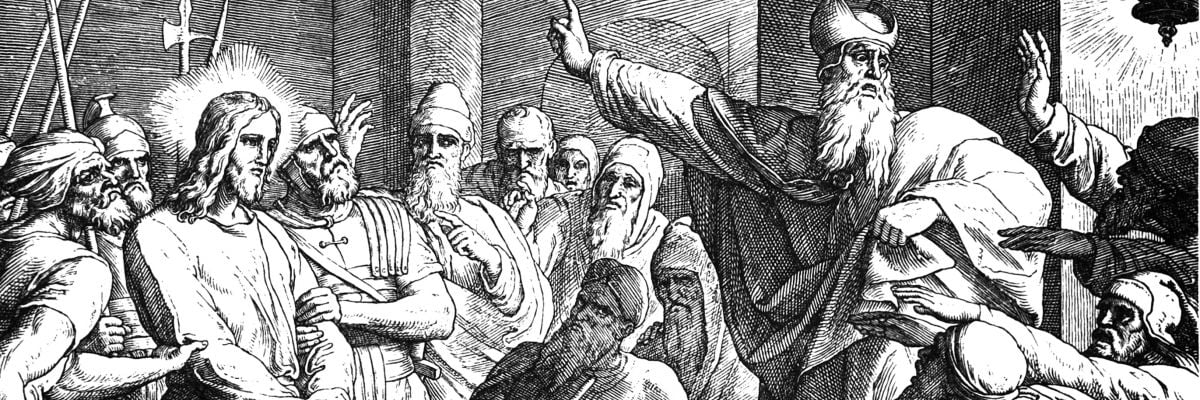
Question:
Answer:
In the Gospel of Luke, it is not until the trial before the Sanhedrin (22:70-71) that an earthly person calls Jesus “Son of God.” It is said by an angel (1:35), Satan (4:3), and demons (4:41, 8:28) but not by any human being. In Luke, even Peter’s confession does not contain “Son of God” but rather Peter calls Jesus the “Messiah of God” (9:20).
The scene is meant to be ironic in that it is Jesus’ enemies who first recognize him for who he truly is. Jesus’ response emphasizes that it is they who have made this statement (the first time recorded from human beings) and that this is the reason they hate him. The Sanhedrin were trying to trap Jesus into making a claim that they could have him executed for, and what ends up happening is that they are the ones who proclaim his identity. They recognize the Son of God but refuse to accept him.
In the Gospel of Matthew, this scene unfolds with a similar emphasis but different theme (26:63-64). A human being has already proclaimed Jesus the Son of God (16:16), so that is not the imagery that Matthew is using. Still, Matthew is using it as a statement of irony. Jesus replies to the Sanhedrin, “You have said so,” and it is meant to recall the previous time Jesus made that same statement (Matt. 26:25). When Jesus predicted his betrayal by one of the disciples, Judas said, “Sure it is not I, Rabbi?”, and Jesus responded by saying, “You have said so.” It is a literary device to show that the one asking the question has unintentionally provided the answer to the question.



